Have you ever heard of a MedServe Fellow? MedServe Fellows are recent college graduates who have completed a pre-medical curriculum and are taking time off before medical school. Fellows spend two years as full-time, active helpers in the clinic. There are many different partners for MedServe Fellows and Alliance Medical Ministry (AMM) is proud to be a part of this network. Since opening our doors 20 years ago, AMM has been focused on teaching the next generation of medical providers, through internships, shadowing opportunities, fellowships and more. We’re pleased to introduce, Kayla Jones:
Kayla Jones, our resident MedServe Fellow has been with us for 7 months and quickly became an integral part of our team. From working with clinic providers in the role of a Medical Assistant, showing patients to their room and taking vitals, to working with our Farm and Wellness Coordinator to recruit patients to our wellness programs to promote good health outside of the clinic, Kayla embodies the MedServe value of being a "champion of equity and health in underserved communities." We asked Kayla a few questions about her experience.
Why did you choose to intern at AMM?
“I believe that AMM embodies the beliefs and values that are meaningful to me regarding healthcare and my life. This clinic focuses on the health & wellness of each patient, and is why I chose to continue my journey at AMM.”
I was introduced to AMM during the Medserve Fellowship program application process in 2023. AMM instantly sparked my interest because of the unique resources that are available for each patient to access at AMM. While applying for this Fellowship program, I knew I wanted to intern at a clinic that prioritizes patient-centered care, as well as support the underserved community by providing access to primary care providers and specialists. I was very impressed that AMM has a garden providing patients and their families with fresh produce. Zumba, Yoga, and cooking classes were also a bonus. AMM has a versatile and passionate staff, and a diverse patient population. I believe that AMM embodies the beliefs and values that are meaningful to me regarding healthcare and my life. This clinic focuses on the health & wellness of each patient, and is why I chose to continue my journey at AMM.
What is one thing you're passionate about in the medical field and why?
Preventative and patient-centered care is often overlooked in healthcare and in underserved communities. I am passionate about Health disparities, which primarily impacts minority populations. This passion began when I learned that my family has a long history of heart disease, hypertension, diabetes, and obesity. I am blessed that my parents were able to make sure that we had access to all of the resources that we needed. When I decided to attend North Carolina A&T State University, I was selected to participate in research that helped target health disparities in the Greensboro/Triad Area. Heart disease is the leading cause of death in America, and it severely impacts the Black community, and the majority of low-income families are only able to access unhealthy foods. The “upscale” grocery stores are located on the other side of town or in another city where the middle to upper-class communities resided. This is called a food desert, and my alma mater is a victim to this issue. Within a 2-6 mile radius, the area only contains fried and fast-food options. I chose a Historically Black College/University because I wanted to help make a difference and directly combat these issues that predispose minority populations to health disparities. My passion for this topic is why I decided to major in Food/Nutritional science, and I am glad to serve at a clinic like AMM. The proactiveness and deliverance of patient-centered care is extremely important. This is the type of care that impacts generations of families and can produce results that help prevent patients from developing certain diseases in the future.
What does "health equity" mean for you?
In order to achieve health equity, everyone must have opportunities that are tailored to their individual needs and receive personalized care that improves their specific level of health. Addressing each patient's social determinants of health* is crucial because it shows how health equity can be achieved. Health inequities have underlying causes that contribute to social determinants of health; racism, poverty, and unequal access to healthcare. In order to achieve health equity, society must value each person equally and make concentrated, continuous efforts to rectify historical injustices, preventable inequalities, and bridging the gap of disparities in healthcare.
What would you say to someone thinking about joining the MedServe Fellowship Program?
MedServe is such a wonderful and eye-opening fellowship program. I highly recommend it to Pre-Medical undergraduate students that are considering taking a gap year before applying to professional or graduate school. I would say that this program has such a phenomenal staff that will help you gain hands-on experience in the medical field. As well as expand your outreach in the community, which is extremely valuable. Taking that leap and applying for this program is the best decision I could’ve made post-grad because you will make many great connections with your community, staff, and cohort. The experience is rewarding because you are given the resources and support you need to continue on your path to becoming a future healthcare provider.
*Social determinants of health (SDOH) are the conditions in the environments where people are born, live, learn, work, play, worship, and age that affect a wide range of health, functioning, and quality-of-life outcomes and risks, according to the DHHS.


